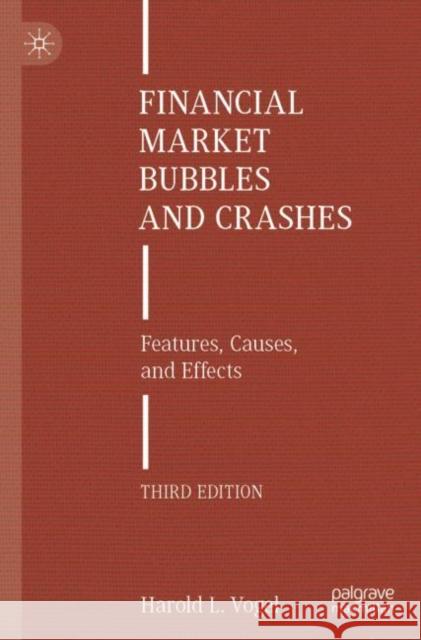Financial Market Bubbles and Crashes: Features, Causes, and Effects » książka
Financial Market Bubbles and Crashes: Features, Causes, and Effects
ISBN-13: 9783030791841 / Angielski / Miękka / 2022 / 579 str.
Financial Market Bubbles and Crashes: Features, Causes, and Effects
ISBN-13: 9783030791841 / Angielski / Miękka / 2022 / 579 str.
(netto: 230,00 VAT: 5%)
Najniższa cena z 30 dni: 231,29
ok. 16-18 dni roboczych.
Darmowa dostawa!
Economists broadly define financial asset price bubbles as episodes in which prices rise with notable rapidity and depart from historically established asset valuation multiples and relationships. Financial economists have for decades attempted to study and interpret bubbles through the prisms of rational expectations, efficient markets, equilibrium, arbitrage, and capital asset pricing models, but they have not made much if any progress toward a consistent and reliable theory that explains how and why bubbles (and crashes) evolve and are defined, measured, and compared. This book develops a new and different approach that is based on the central notion that bubbles and crashes reflect urgent short-side rationing, which means that, as such extreme conditions unfold, considerations of quantities owned or not owned begin to displace considerations of price.
Economists broadly define financial asset price bubbles as episodes in which prices rise with notable rapidity and depart from historically established asset valuation multiples and relationships. Financial economists have for decades attempted to study and interpret bubbles through the prisms of rational expectations, efficient markets, equilibrium, arbitrage, and capital asset pricing models, but they have not made much if any progress toward a consistent and reliable theory that explains how and why bubbles (and crashes) evolve and are defined, measured, and compared. This book develops a new and different approach that is based on the central notion that bubbles and crashes reflect urgent short-side rationing, which means that, as such extreme conditions unfold, considerations of quantities owned or not owned begin to displace considerations of price.











